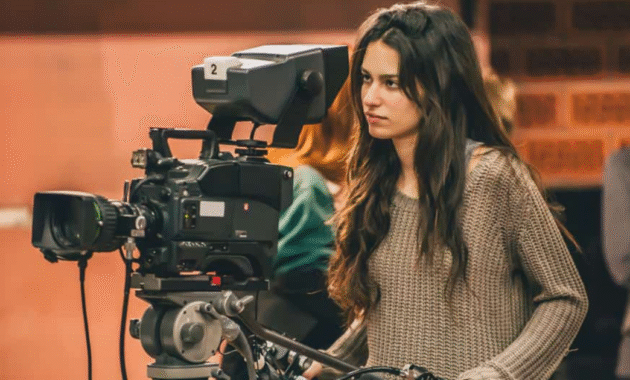The entertainment industry is a vibrant, fast-paced world full of creativity, innovation, and endless opportunities. From acting on the big screen to producing chart-topping music, the sector offers a wide variety of career paths for those passionate about storytelling, performance, and media production.
Breaking into entertainment can seem daunting given its competitiveness and the diversity of roles available. However, with the right guidance, skills, and perseverance, you can carve out a successful career in this exciting field.
In this comprehensive guide, we will explore the top entertainment careers, the skills needed to thrive, and actionable steps to help you launch your journey in the industry.
Understanding the Entertainment Industry Landscape
What Is the Entertainment Industry?

The entertainment industry encompasses a broad range of sectors including film, television, music, theater, gaming, digital media, and live events. It involves creating, producing, and distributing content that entertains, educates, and inspires audiences worldwide.
Why Choose a Career in Entertainment?
- Creativity: Entertainment careers allow you to express your creativity and bring imaginative ideas to life.
- Diverse Opportunities: The industry offers roles both in front of the camera and behind the scenes.
- Dynamic Work Environment: Fast-paced projects, collaboration with talented professionals, and constant learning.
- Potential for Fame and Influence: Especially for performers and creators with significant audience reach.
Top Entertainment Careers to Consider
1. Actor / Actress
Role Overview
Actors and actresses portray characters in movies, TV shows, theater productions, and commercials. They bring stories to life through their performances, often working closely with directors and writers.
Skills Required
- Strong acting and improvisation abilities
- Emotional intelligence and adaptability
- Voice control and physical expressiveness
- Networking and resilience to handle rejection
How to Start
- Take acting classes and workshops
- Build a portfolio with demo reels
- Audition for roles in local theaters, indie films, or student projects
- Get an agent or manager for representation
2. Film and TV Producer
Role Overview
Producers oversee the entire production process, from financing and hiring key personnel to distribution. They ensure projects are completed on time, within budget, and meet creative goals.
Skills Required
- Project management and organizational skills
- Budgeting and negotiation abilities
- Leadership and team coordination
- Problem-solving and multitasking
How to Start
- Gain experience in film production or media management
- Intern or work as an assistant on sets
- Network with industry professionals
- Consider a degree in film studies, media production, or business
3. Screenwriter / Scriptwriter
Role Overview
Screenwriters create the scripts that serve as blueprints for movies, TV shows, and web series. They develop dialogue, plot, characters, and scene directions.
Skills Required
- Excellent storytelling and writing skills
- Creativity and imagination
- Understanding of screenplay structure and formatting
- Ability to revise and collaborate with producers and directors
How to Start
- Write scripts and seek feedback from peers or mentors
- Participate in writing competitions and workshops
- Build a portfolio of original scripts
- Network with filmmakers and agents
4. Musician / Singer
Role Overview
Musicians and singers perform music live or in studio recordings. They may write, compose, and produce their own songs or collaborate with others.
Skills Required
- Musical talent and technical proficiency
- Stage presence and performance skills
- Creativity in songwriting and composition
- Marketing and self-promotion abilities
How to Start
- Train through music schools or private lessons
- Perform at local venues and events
- Use social media and streaming platforms to build an audience
- Collaborate with other artists and producers
5. Director
Role Overview
Directors guide the artistic vision of a film, TV show, or stage production. They work closely with actors, cinematographers, and crew to bring the script to life.
Skills Required
- Strong leadership and communication skills
- Visual storytelling and creative decision-making
- Technical knowledge of filming and production
- Ability to manage time and resources effectively
How to Start
- Study film or theater directing
- Assist established directors or work on student films
- Create your own short films or projects
- Network with producers and writers
6. Cinematographer / Director of Photography

Role Overview
Cinematographers are responsible for capturing the visual elements of a production. They decide on lighting, camera angles, and shot composition to create the desired mood.
Skills Required
- Technical expertise with cameras and lighting equipment
- Artistic eye for framing and composition
- Collaboration with the director and crew
- Problem-solving and adaptability on set
How to Start
- Study film production or cinematography
- Work as a camera assistant or intern on sets
- Build a showreel of your work
- Keep up with the latest technology and techniques
7. Editor
Role Overview
Editors assemble raw footage, audio, and visual effects into a coherent final product. Their work shapes the pacing, mood, and storytelling of the film or show.
Skills Required
- Proficiency with editing software (e.g., Adobe Premiere, Final Cut Pro)
- Attention to detail and storytelling sense
- Ability to work under tight deadlines
- Good communication with directors and producers
How to Start
- Learn video editing through courses or self-study
- Edit short films, YouTube videos, or student projects
- Create a demo reel showcasing your editing skills
- Network with filmmakers and studios
8. Animator and Visual Effects Artist
Role Overview
Animators create motion graphics and special effects used in movies, TV shows, video games, and commercials. Visual effects artists add digital enhancements to live-action footage.
Skills Required
- Strong drawing and design skills
- Mastery of animation software (e.g., Maya, Blender)
- Creativity and technical proficiency
- Ability to collaborate with creative teams
How to Start
- Study animation, graphic design, or computer graphics
- Build a portfolio or demo reel of animation work
- Intern with studios or game developers
- Stay updated with industry trends and tools
9. Talent Agent / Manager
Role Overview
Talent agents and managers represent artists, helping them secure roles, negotiate contracts, and manage careers.
Skills Required
- Strong negotiation and interpersonal skills
- Knowledge of the entertainment business
- Networking and relationship-building
- Marketing and promotional abilities
How to Start
- Gain experience through internships at talent agencies
- Build contacts in the industry
- Consider courses in entertainment management
- Develop a reputation for reliability and integrity
10. Entertainment Journalist / Blogger
Role Overview
Entertainment journalists cover celebrity news, movie reviews, interviews, and industry trends for magazines, websites, and TV.
Skills Required
- Strong writing and research skills
- Curiosity and persistence
- Ability to meet deadlines and handle breaking news
- Social media and digital content proficiency
How to Start
- Study journalism, communications, or related fields
- Write for school or local publications
- Build a portfolio with blogs or freelance articles
- Network with editors and media professionals
How to Break Into the Entertainment Industry: Tips for Success
Build a Strong Network

Networking is vital. Attend industry events, workshops, film festivals, and join online communities. Relationships can open doors to auditions, job offers, and collaborations.
Develop a Unique Brand
Stand out by identifying what makes you unique. Whether it’s your acting style, musical genre, or creative vision, build a personal brand that highlights your strengths.
Gain Relevant Experience
Start with internships, assistant roles, or freelance projects. Hands-on experience builds skills and credibility.
Continue Learning
The industry constantly evolves. Take courses, attend seminars, and keep up with new technologies and trends.
Be Persistent and Resilient
Rejection is common. Stay focused, learn from setbacks, and keep honing your craft.
Also Read : The Future Of Entertainment: What’s Next In Movies, Music, And More
Conclusion
The entertainment industry offers a diverse range of exciting career paths for creative and driven individuals. Whether you aspire to be in front of the camera, behind the scenes, or influencing the industry through journalism or management, opportunities abound. By developing your skills, building your network, and maintaining perseverance, you can break into this competitive field and build a rewarding career in entertainment.
FAQs
1. What is the best way to start a career in entertainment?
Start by gaining relevant education or training, building a portfolio, and networking with industry professionals. Internships and small projects are excellent entry points.
2. Do I need formal education to work in entertainment?
While not always mandatory, formal education in relevant fields (like acting, film production, or journalism) can improve your skills and job prospects.
3. How important is networking in entertainment?
Extremely important. Networking helps you learn about opportunities, gain mentorship, and collaborate with others.
4. What skills are most valuable in the entertainment industry?
Creativity, communication, adaptability, technical proficiency (depending on the role), and persistence are key skills.
5. Can I have multiple roles in entertainment?
Yes! Many professionals take on multiple roles like acting and producing or writing and directing, enhancing their versatility and opportunities.




